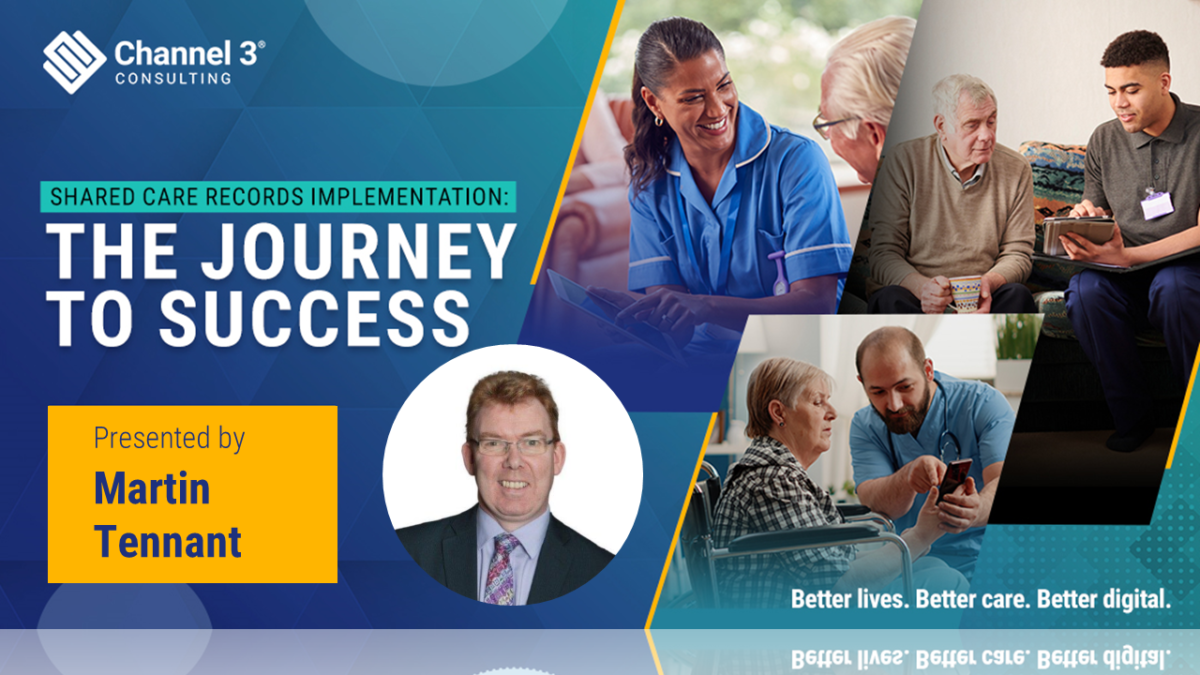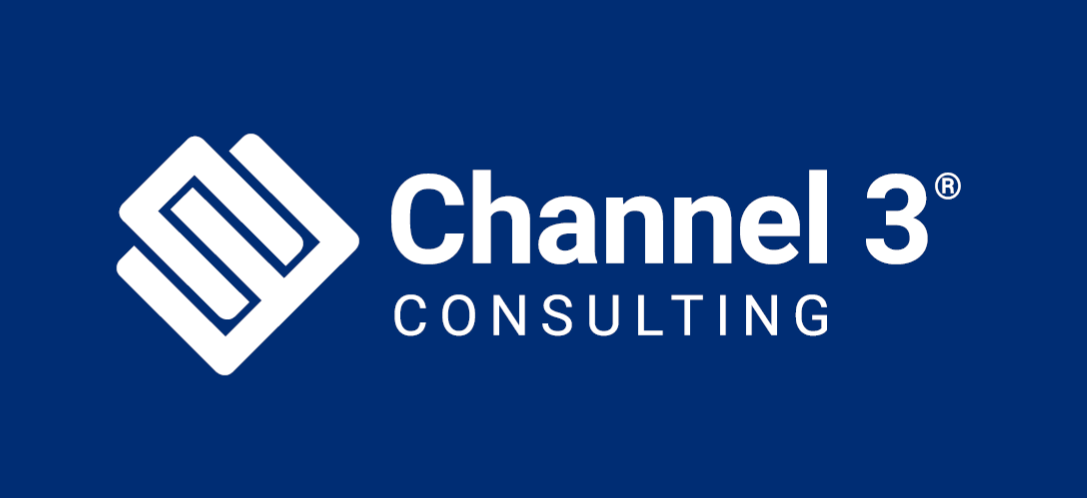The panel from our recent webinar, “Shared care records implementation: The journey to success”, discussed some key topics relating to ShCRs. Our host, Channel 3 partner Martin Tennant, was joined by:
- Astrid Fairclough, Programme Director for the Wessex and Dorset Care Records.
- Laura Godtschalk, ShCR Programme Manager at Leicester, Leicestershire & Rutland ICS.
- Úna Rice, Head of Digital Integration and Interoperability at Gloucestershire ICS.
Our expert panel shared the challenges they faced, successes they achieved and lessons they learned during their implementations.

Whether you’re looking for ideas about successfully embedding a ShCR in your integrated care system (ICS) or enhancing existing ShCR performance, the panel’s experience offers some key things to consider as you deliver and adopt your ShCRs.
Learning from other successful shared care record implementation projects
Implementing ShCRs across multiple partners is complex, but drawing on the wisdom of others can be valuable and make the journey easier. For the LLR partnership with Yorkshire and Humber Care Record, Laura Godtschalk highlights why a collaborative approach worked so well in Leicestershire:
Joining that partnership enabled us to do a lot of collaborative support with Lee Rickles (Yorkshire & Humber Care Record Programme Director and CIO) and the colleagues up in Yorkshire and Humber; it meant that we could leverage existing cross-boundary relationships and share good practice between us.
All ICSs are working towards the same common goal: enabling better and more efficient care. Laura suggests that the key to successful implementation for LLR was not about reinventing the wheel but instead building on existing structures that work well.
There are going to be differences between some regions, but ultimately, starting with something that’s already proven is always more productive than starting from a blank sheet of paper.
Overcoming barriers to technical and cultural change
As with any significant operational change, a shared care record journey can present a variety of challenges. With no two projects of this scale being the same, Gloucestershire uses different connectors and methods to draw data from health and care sources. Úna outlines the main technical challenges as a lack of common operational standards and variable data quality.
Our standards are not yet specific enough for suppliers to work to and for us to hold them to those standards as a collective. That lack of specificity around our standards is one of the big challenges.
The second challenge is the data quality and appropriateness of some of the data we’re sharing. It’s not written or formatted in a way that makes sense to anybody consuming it outside of that setting from another discipline or another profession.
Data standardisation is only one pillar to success. Cultural change and encouraging the workforce to be responsible for their data are also crucial. Due to the necessary focus on embedding ShCR technical solutions, winning the hearts and minds of those at the frontline, who will realise the benefits, is often overlooked. Úna suggests that real change can only happen through a collaborative effort with “boots-on-the-ground” colleagues:
It’s about trust and relationships. If you get them right, everything is easier. If you haven’t got them, it’s an uphill battle.
Increasing the usage of shared care records
Having won buy-in from frontline health and care colleagues, the Dorset Care Record has taken a lead-by-example approach to increase the usage of shared care records. According to Astrid Fairclough, programme director, user stories have been vital to the uptake of care records. Astrid states:
We’re using stories and case studies with our partnerships. Not only do we use stories to encourage our users, but when one organisation has had a huge result, we’ll bring that to the floor.
The challenges of working with shared care records
In addition to the challenges concerning data standardisation, navigating around existing organisational contracts with system suppliers and aligning ShCRs to existing system roadmaps can also both act as barriers to adoption. To overcome this, Laura suggests making suppliers aware of local ICS ambitions to enable them to be effectively factored into future system developments. She emphasises this point:
Rather than just one ICS or 42 different ICSs going to them to ask the same questions, go as a collective and say this is what we need from our systems. We need the backing from the system suppliers.
The future of shared care records
ShCRs have a crucial role in enabling ICSs to provide better care for the public, but can they be embedded into other settings such as social care, hospices or care homes? All three of our panel members favour this approach to provide seamless care, as people move between different parts of the health and social care system. Laura states,
We’ve had social care at the forefront of our integration right from the very start and have been working hard to interlink different organisations for some time.
Despite the panel’s enthusiasm for this vision, data quality and standardisation must still take place across the sector. The discussion led to the following insight from Úna:
Most of our ShCR solutions are largely a view of information. I think where we need to go next is to achieve real cross-organisation collaboration: virtual care wards, transferring care systems, and the patient flow around the system and into social care.
The power of shared care records
ShCRs across health and social care communities deliver significant care benefits. They have the potential to improve communication between care professionals and service providers and ultimately improve people’s health and care outcomes. While implementation may bring challenges for ICSs, there is a growing community of ShCR practitioners to learn from. Collaboration and strategic partnerships are key to making an ShCR succeed as it matures.
Channel 3 is proud to have worked with Astrid, Laura and Una and their teams at various stages of their ShCR journeys to introduce and embed new processes and technology.
Please use the form below to get in touch if you would like to talk to us about your ShCR journey. We can support you and your ICS to design, deliver and optimise your ShCR to truly deliver better lives, better care and better digital.

